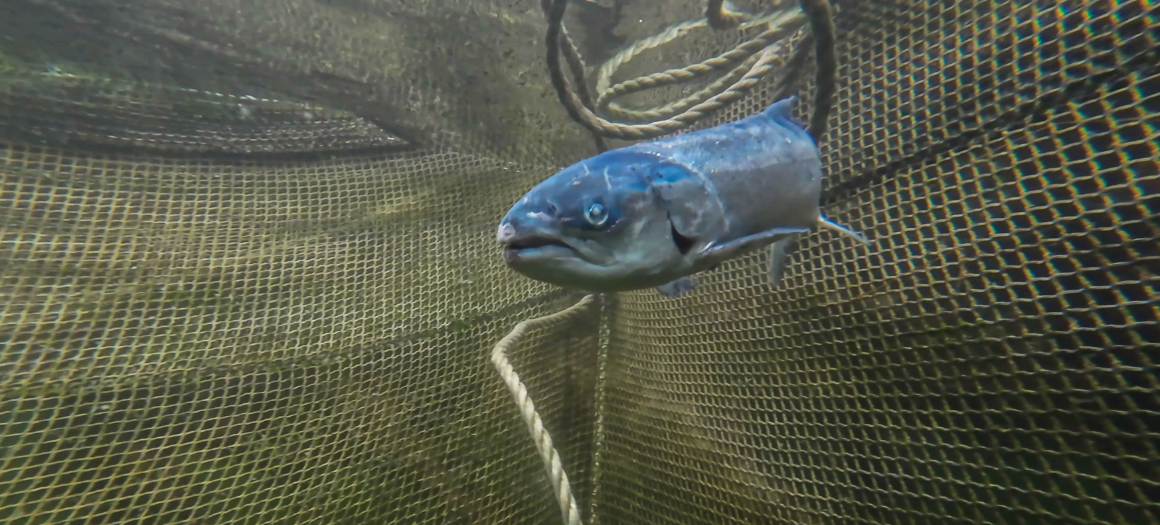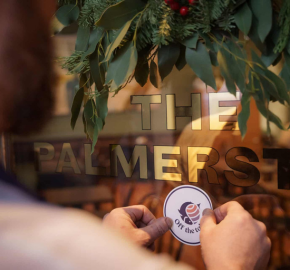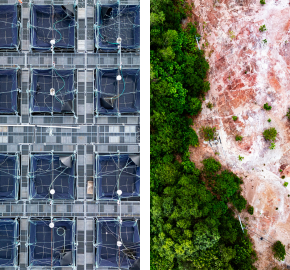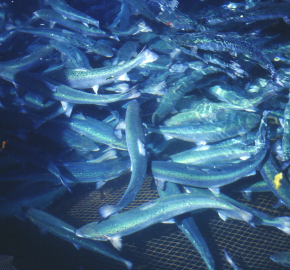WildFish celebrates landmark move towards improved transparency of Scottish organic salmon farming

WildFish is celebrating another victory this week in its battle against the poor environmental record of Scottish salmon farms, particularly those certified as “organic”.
The Information Commissioner (an independent UK regulator that protects the public’s information rights and data privacy) has ruled that the Soil Association certification body is bound by freedom of information law, meaning inspection records for certified farms should now be made public.
Following this ruling, WildFish is calling for immediate disclosure of salmon farm inspection records from Soil Association Certification Limited.
Salmon farming is fundamentally at odds with organic standards
Over the past year, WildFish and others have been calling on the Soil Association to end its organic certification standard for farmed salmon, arguing that the certification is misleading consumers. [1]
WildFish’s latest report, published this week, found that Scottish farmed salmon is being marketed in such a way that consumers could be misled as to the origin, welfare and environmental performance of their purchases, with organic certification playing a significant role in greenwashing the realities of the industry (learn more).
WildFish has also just referred another certifier of Scottish salmon farms – RSPCA Assured Limited – to the Charity Commission to investigate whether RSPCA Assured Limited is operating within a charitable remit and reassess whether it should be registered as a separate charity from the RSPCA (learn more).
Gaining access to information from Soil Association Certification Limited
Soil Association Certification Limited certifies a small handful of Scottish salmon farms against Soil Association standards. When asked by WildFish in May 2024 to disclose inspection records [3] relating to ‘organic’ salmon farms, the certification company argued that it was not a public authority for the purposes of the Environmental Information Regulations (EIRs) 2004 and didn’t need to respond or to provide inspection reports to WildFish.
WildFish referred the matter to the Information Commissioner who has this week agreed that because Soil Association Certification Limited is appointed by the UK Government to run the statutory organic certification scheme [4] in the UK (including not just salmon farms, but all arable and livestock farms certified as organic by the Soil Association), it is a public authority for the purposes of the Environmental Information Regulations 2004.
The Commissioner’s Decision now opens the door to all environmental information the Soil Association Certification Limited holds, such as its salmon farm inspection reports.
A move towards better transparency of Scottish salmon farming
Responding to the news, Guy Linley Adams, Solicitor at WildFish, said:
“We are delighted that the Information Commissioner has decided that the Soil Association’s body is bound by freedom of information law.
“The way Scottish salmon farming is conducted is about as far removed from the founding organic principles of the Soil Association as you can get, but we can now demand the release of Soil Association certification inspections of the small handful of so-called ‘organic’ Scottish salmon farms.
We trust that the Soil Association’s certification company will not appeal the Commissioner’s decision, nor try to put any further barriers in the way of full disclosure.
“Anything short of immediate publication of all its inspection reports will raise serious questions as to who the Soil Association certification company is really working for – the public or the salmon farmers?”
The Information Commissioner’s Decision comes as long-raised concerns about the environmental, welfare and sustainability impacts of open-net salmon farming in Scotland continue to escalate.
Rachel Mulrenan, Scotland Director at WildFish said:
“This ruling is a breakthrough in our work to expose the realities of Scottish salmon farming. Scottish salmon farming is a highly intensive polluting and environmentally damaging operation that should not benefit from any association whatsoever with the otherwise good name of the Soil Association. That said, if the Soil Association chooses to continue certifying Scottish salmon farms as ‘organic’, consumers deserve transparency as to the environmental and welfare performance of these so-called ‘organic’ farms.
“In the same way that RSPCA Assured certification has come under intense scrutiny recently for providing a ‘fig leaf’ of respectability to the salmon farmers industry, it is also time for the Soil Association to decide whether it wishes to persist in lending its name to an intensive industry such as salmon farming that does so much damage to the environment.”
Want to help us take farmed salmon Off the table? Follow the link below to join our campaign today.
I WANT TO TAKE FARMED SALMON OFF MY TABLE
List of references
[1] The Guardian: ‘Unacceptable greenwashing’: Scottish farmed salmon should not be labelled organic, say charities
[2] ICO Decision of 10 February 2025 IC-324806-C7N7
[3] WildFish requested reports of all inspections of Scottish salmon Farms by Soil Association Certification Limited covering the last three years to May 2024.
[4] Soil Association Certification Limited is appointed by the UK Government as a control body under assimilated EU Regulation (EC) 834/2007 (certification of organic foods etc) to certify both terrestrial farms and fish farms as against organic standards.



